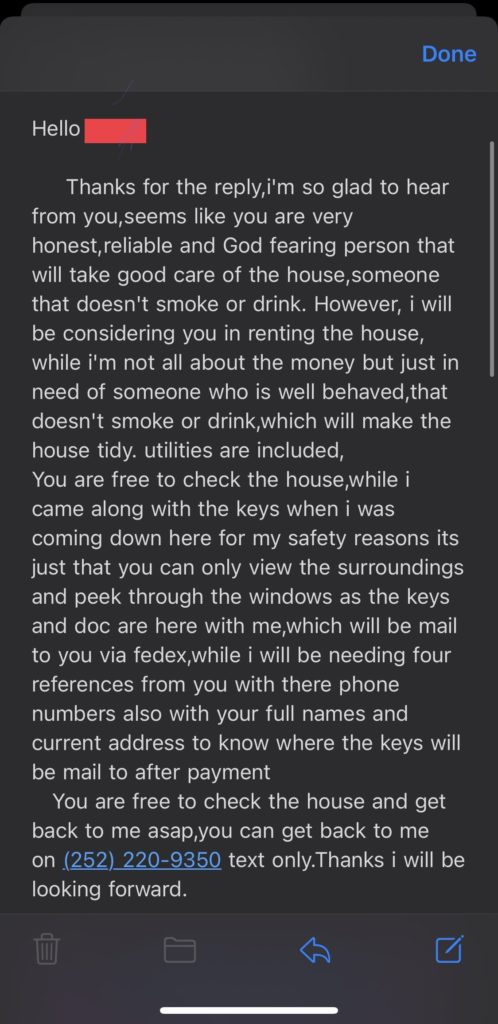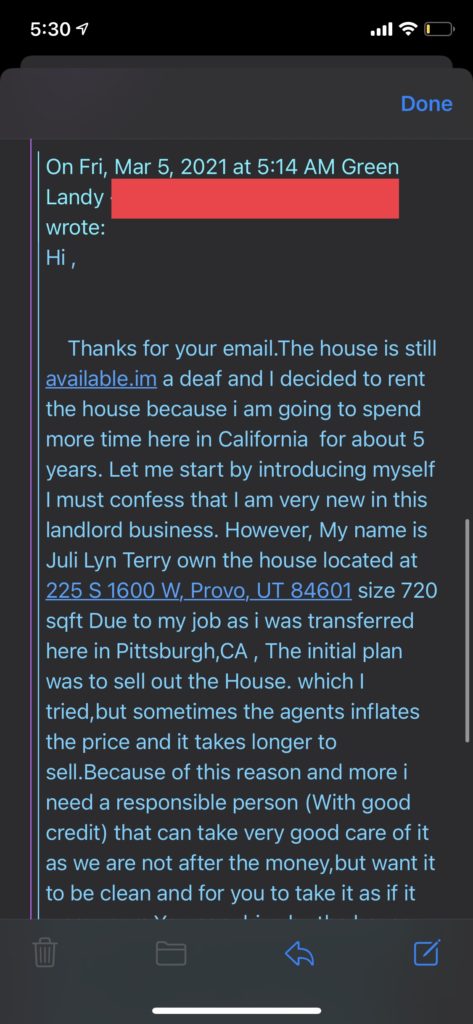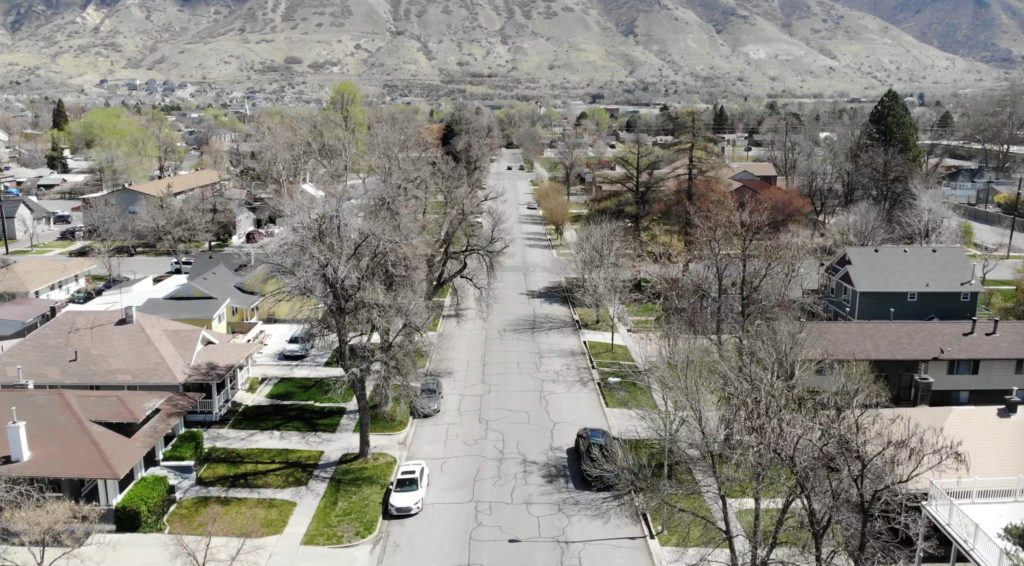
On the brink of winter semester midterms and in preparation for marriage to his fiancé, Baylee Dowdle, BYU student Tyler Van Patten found himself scouring the Provo housing market for a home to live in.
After finding the perfect place, he grabbed the opportunity to rent it and began jumping through the many hoops required by the owner. Both he and his fiancé provided references from ecclesiastical and workplace leaders, and even answered questions about whether or not they smoked or drank. After just a few days, Van Patten was scammed out of $1,000.
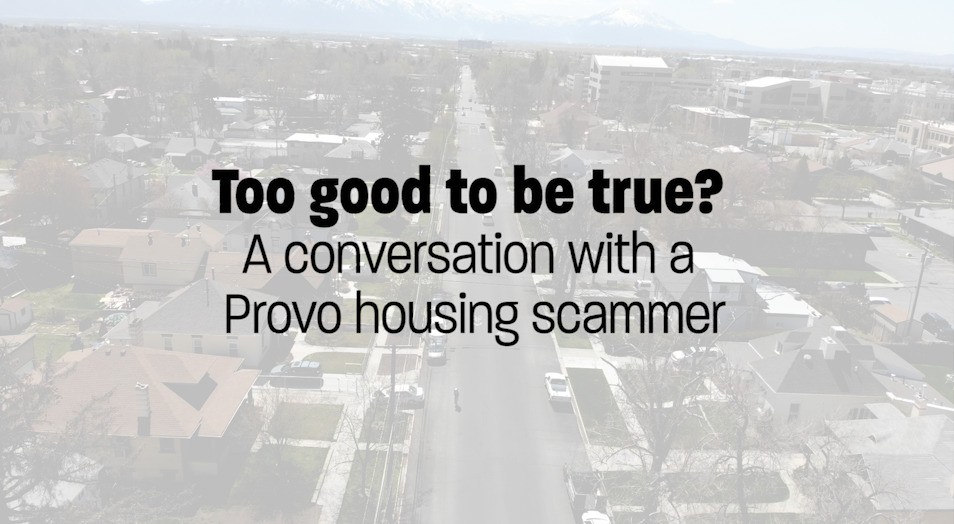
“They knew what to say, and they knew how to make it look real,” he said. “It was just enough to keep me hooked and it worked,” he said.
Despite not being shown the property, the couple still went and toured the outside of the home when they saw a “for sale” sign out front. The owner promised it would be taken down immediately after claiming that the realtor was unable to sell the house.
“If the person is not there to meet you, it is just not worth it,” Van Patten said.
The couple tried to call the owner, but she claimed she was deaf. After texting back and forth for a few days, the owner requested that Van Patten use a variety of payment methods. She asked if he could wire the money or use Zelle, a money transfer app. After realizing that Zelle would not send the money instantly, she requested that they pay her immediately with two Nordstrom gift cards sent over text.
Van Patten is not alone in his experience. Shannon Blanchard and her husband, Spencer, were just a few minutes away from putting a deposit down on a similar house in Provo when they received a call back from a local realtor explaining they were being scammed.
Blanchard said the scammers only communicated over email because they also claimed to be deaf. Despite being wary of the situation, she still filled out an application.
“Looking back, we should have seen the warning signs right away, they seem so obvious now. But we did hold onto hope that it was real for at least a few days, and we even filled out the ‘rental application form’ that they had sent us, which I regret now, although we did not include any Social Security or payment info,” Blanchard said. “The deal seemed really good and we were desperate to find housing at the time.“
Blanchard noticed some of the warning signs and even asked for identification that matched the Utah County property records website.
“They sent us a picture of their passport and while the name on the passport matched the name on the website, when we compared the picture to our real passports, we realized tiny details that made it seem like the passport was fake. Lines were in the wrong place and some of the fonts looked slightly off,” Blanchard said.
Although she never lost any money, Blanchard has become wary of renting through the online platforms that many now use to hunt for housing, particularly during the COVID-19 pandemic.
“I’m definitely much more wary of using websites like KSL and Facebook Marketplace to look for housing. A guy we messaged on KSL about a rental seemed to also be a scammer, because he wanted payment before showing us the property as well,” Blanchard said. “I don’t think I’ll use these sites anymore.”
Blanchard also shared how important it is for her now to feel like she trusts a landlord despite the fact that this makes it even harder to find housing.
“I don’t think we’ll rent anything unless it’s through a reputable company, or we know the landlord personally, or someone that we trust knows the landlord personally. That makes it a lot harder to find housing, especially cheap basement apartment housing. But I’d rather have the peace of mind than potentially get my family and myself into a bad situation,” Blanchard said.
Van Patten said he is also now wary of websites advertising Provo housing, but he is especially concerned with the Facebook communities.
“Everytime that you are looking for a house through KSL, they have things that say something about making sure you are not being scammed, but Facebook Marketplace is such a dangerous place and there is no way to track people,” Van Patten said.
In an effort to help people avoid fraud in the state and to help track people charged with fraud, the Utah Attorney General created a White Collar Crime Offender Registry. Although the tool can be helpful in identifying white collar crime originating in Utah, many scammers are located in other states and countries.
Van Patten said there is an easy way to tell if something is a scam.
“If it is too good to be true, it’s not true. That is 100% always true,” Van Patten said.
Is the fraud capital of the U.S. getting worse?
The Daily Universe has been documenting housing scams in Provo since 2015. That year, the paper published a story about a couple who was scammed by what they believed to be an LDS couple leaving on a church mission. In the years since that report, the circumstances of the scams and their occurrences have skyrocketed.
BYU students are at an increased risk of being targeted because they are statistically younger and inexperienced at renting properties. According to the Federal Trade Commission “People in their 20s and 30s, a cohort that roughly tracks the so-called Millennial generation, are 25% more likely to report losing money to fraud than people 40 and over generally.”
According to the Federal Bureau of Investigations Internet Crime Complaint Center, over the last four years, there has been an increase from $76,795 to $1,960,429 in the amount of money lost per year due specifically to rental and real estate fraud in Utah.
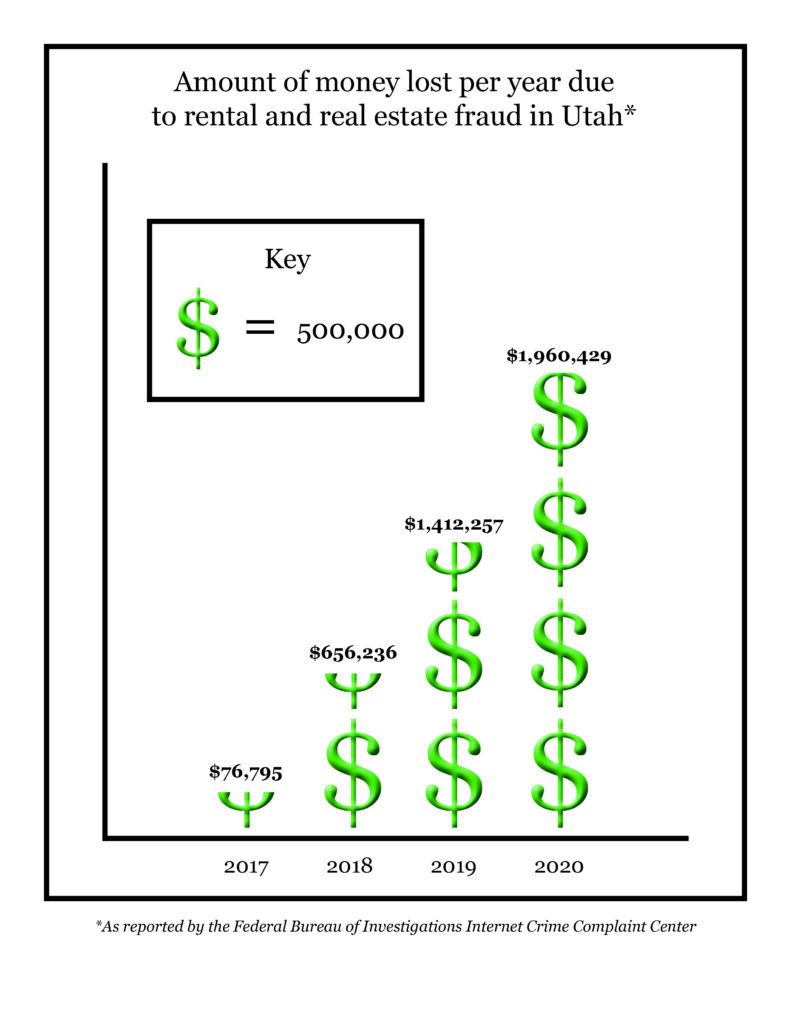
The state is notorious for having been the fraud capital of the U.S for decades.
Despite this stark rise in the amount of money lost in housing scams in Utah, there are not many resources to educate young adults and students about the risks of fraud.
The Utah Department of Commerce provides detailed education on a variety of scams, but none specifically having to do with rentals and housing. The BYU Off-Campus Student Housing office does not have resources for married students regarding scams, but they do acknowledge the possibility of fraudulent activity on their own housing listings page by stating that the facility has no affiliation with BYU.
Anyone interested in reporting housing and rental fraud in Utah can do so by contacting the FBI IC3 division or the City of Provo.

